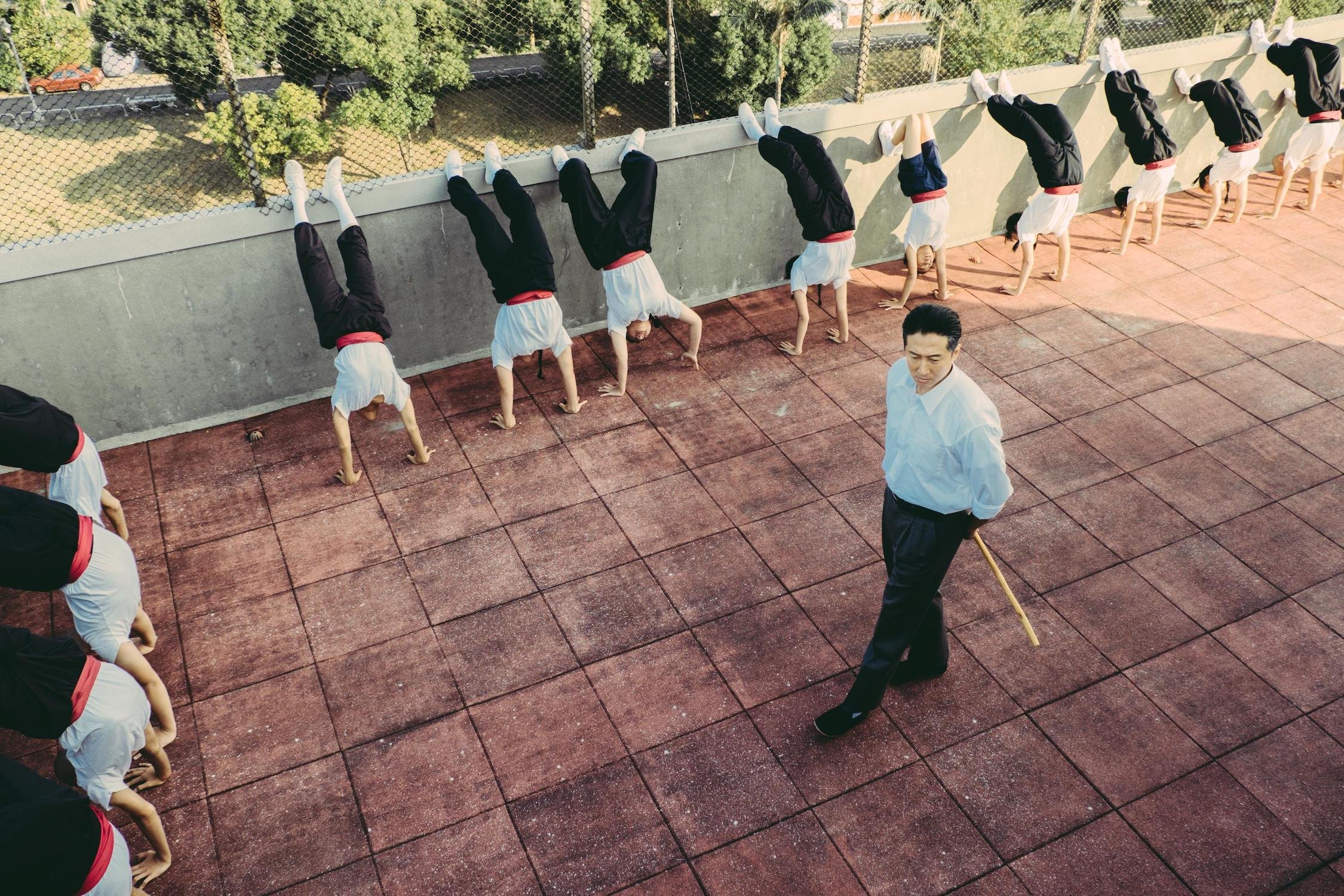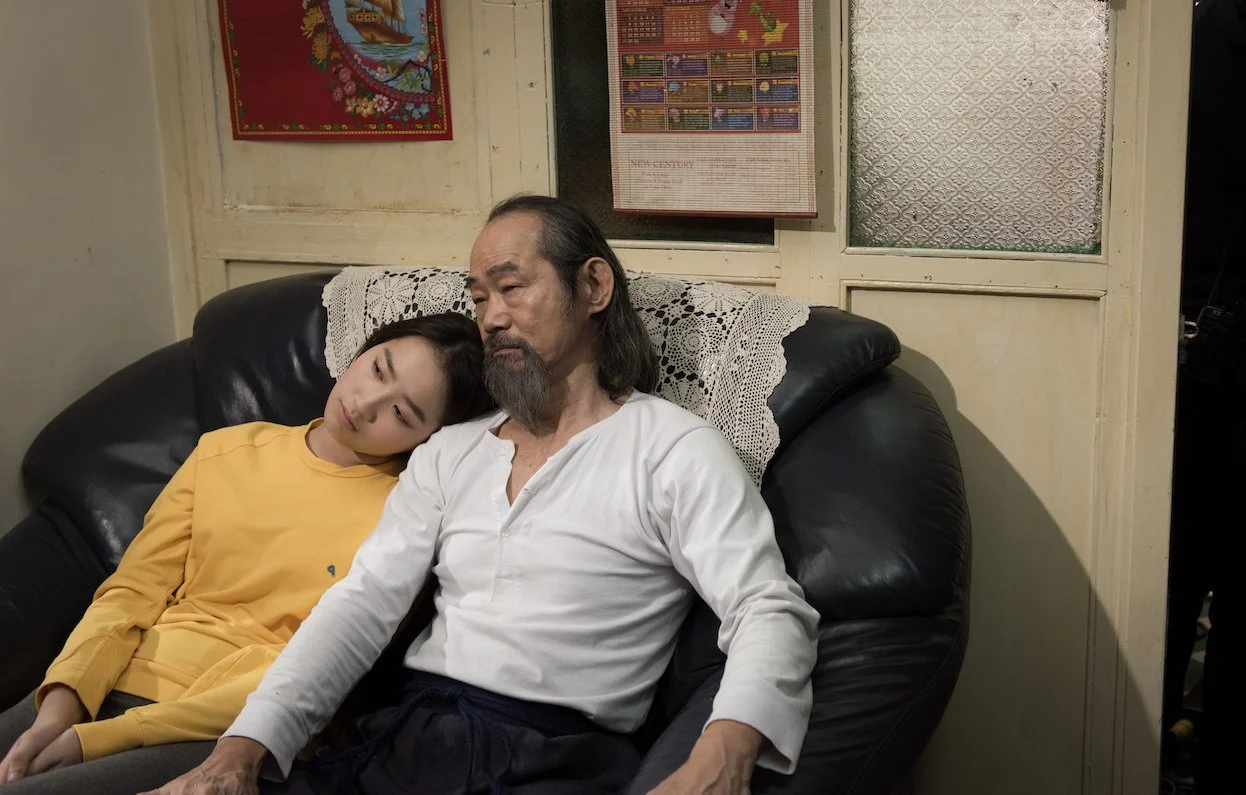Lucky Seven?
Seven filmmakers, seven decades, seven short films. Hong Kong tiptoes through its cinematic past with mixed results.
Septet: The Story of Hong KOng
Directors: Sammo Hung, Ann Hui, Patrick Tam, Yuen Wo-ping, Johnnie To, Ringo Lam, Tsui Hark • Writers: Sammo Hung, Au Kin-yee, Lou Shiu-wa, Melvin Luk, Patrick Tam, Yuen Wo-ping, Johnnie To, Yau Nai-hoi, Ringo Lam, Tsui Hark, Roy Szeto
Starring: Francis Ng, Sire Ma, Jennifer Yu, Ian Iskandar Gouw, Yuen Wah, Ashley Lam, Ng Wing-sze, Wu Tsz-tung, Eric Tsui, Simon Yam, Mimi Kung, Royce Lam, Chung King-fai, Cheung Tat-ming, Emotion Cheung, Lam Suet, Lawrence Lau
Hong Kong • 1hr 51mins
Opens Hong Kong July 28 • IIB
Grade: B
Anthologies are funny things. They are precisely the film version of a short story collection, and no matter who you are – Stephen King, Joyce Carol Oates, Anton Chekhov – not every story is going to hit it out of the park. Greatest hits records/playlists are like that. You’ll be listening to something and suddenly be all. “What do people see in that song?” Point is, by their very definition an anthology is a mixed bag. They’ll run scalding hot, stone cold, and too many will just kind of be somewhere in the middle. The often delayed Septet: The Story of Hong Kong | 七人樂隊 is a picture perfect anthology.
This is familiar territory. There was SARS fundraiser 1:99 in 2003, horror anthologies are always popular – Tales from the Occult is coming soon – and HKIFF tried this with its Beautiful series a few times, recruiting directors like Mabel Cheung, Kim Tae-yong (Mr Tang Wei), Zhang Yuan and Christopher Doyle. Now it’s Milkyway mastermind Johnnie To Kei-fung’s turn. The idea behind Septet was to remind us all of the glories of film stock, and to get a bunch of old pros together to “Set an example of solidarity in the Hong Kong movie industry by making a movie together without financial considerations.” (At last look To was working on a sequel featuring seven emerging filmmakers.) Each of this, erm, septet picked a decade and got to work telling stories about family, discipline, regret, greed and the march of time in Hong Kong. Some worked. Some didn’t.
By that unscientific hot/cold/average metric, Septet should clock in with two treats, two stinkers, and three that are just mahmahdei. And you know what? That’s about right. At the top end of the spectrum sits the first entry, martial arts legend Sammo Hung Kam-bo’s “Exercise” and … checks notes … martial arts legend Yuen Wo-ping’s “Homecoming”, starring – wait for it – martial arts legend Yuen Wah. Hung’s 1950s set story about a strict martial arts instructor (played by Timmy Hung, Sammo’s oldest) and the couple of troublemakers trying to cut practise corners, makes for a perfect complement to Yuen’s “Homecoming.” An elderly martial arts master has to make room in his flat for his granddaughter (Ashley Lam) when she returns to Hong Kong from university. It’s the ’90s and that was happening a lot, but Yuen and co-writer/Milkyway workhorse Au Kin-yee make the audacious decision to make the generation gap not a source of cliché conflict but gentle comedy and genuine affection. It’s refreshing to see a “kid” who’s not a brat and an “old” who’s not an idiot. “Homecoming” wins points for its charm as well as its willingness to jettison tired archetypes. Bravo, Yeuns. Bravo.
The great swath in the middle, sad to say, includes Ann Hui On-wah’s “Headmaster”, a typically Hui-ish, hushed examination of unfulfilled romantic yearning mostly due to the stress of expected behaviours in the ’60s; “Bonanza”, from producer Johnnie To, a brief skewering of our collective fixation with getting rich quick and its consequences (this one is 2000s); and “Astray”, most notable for being Ringo Lam Ling-tung’s last film before his untimely death in December 2018. The shambling “Astray” takes place in a transformed Hong Kong, unrecognisable to the native coming back for a holiday (Simon Yam Tat-wah, still handsome), who could be Lam’s alter ego, resettling in Hong Kong after his partial JCVD exile of the ’90/00s. The film’s melancholy ending and the flashes of Lam’s nihilism make you wish he were still here and still making thrillers.
Rounding out Septet are its dual turkeys. New Wave titan Patrick Tam Kar-ming’s “Tender Is The Night” is a baffling, overly artistic (don’t sprain anything on that reach, Patrick) slog about a pair of drippy teens? Early twentysomethings? In the ’80s whining about how she’s moving overseas with her family during the last great migration ahead of the handover in 1997. They spend most of their roughly 15 minutes quoting crappy poetry (or quoting poetry crappily) to each other and trying to sound profound. It doesn’t work. Stars Jennifer Yu and Ian Iskander Gouw don’t get to interpret Tam’s usually piercing observations of youthful malaise and how easy it is to undo the ties that bind us – if you missed it check out his last film, 2006’s After This Our Exile – which is a shame considering Yu is one of Hong Kong’s most engaging emerging actors, and the material has gained a ton of currency since it was shot. Literally closing the film is Tsui Hark’s “Conversation In Depth”, which isn’t so much a turkey as it’s simply bizarre; depending on your tolerance for Tsui’s weirdness it could fall into the “best” section. The story follows a small group of inmates, possibly patients (Cheung Tat-ming, Emotion Cheung, Lam Suet, Lawrence Lau) in a psychiatric ward – or maybe a lab – who’ve been asked to pretend they’re either patients or doctors, and then swap around. Is it an experiment in reality? In perception? Madness or identity? In cinema, considering the action takes an incredibly meta, cameo-laden turn in its final moments. “Conversation” is set in an unidentified future after the 2020s, so it’s possible Tsui is making a sly comment on the state (or fate) of Hong Kong cinema, but it’s so harried and OTT it’s buried way, way deep. Regardless of whether you like it, you can’t say Tsui abandoned his singular aesthetic or that he wasn’t having a good time. There’s a lot to be said for a little unbridled joy these days. — DEK



